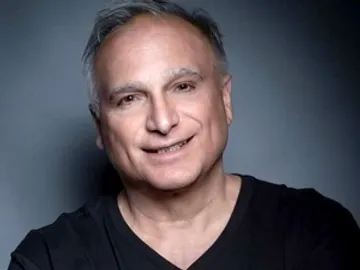In the beginning of my internship with Simba Productions I was unsure of the work that I would be doing for the next couple of months. Interning was unfamiliar terrain to myself and many other college students, who either graduated, or were taking classes during the pandemic. For many of us interning wasn’t an option during our undergraduate studies due to the current issue at hand, and many of us were forced to intern during the post-college period of our lives. To simply put it, this was a scary time for many of us.
During my first week at Simba, I was told to watch Extra Innings; a film that was made through the studio, and written, produced, and directed by my boss, Albert Dabah. I’m a junkie for independent films, and all things independent, so having this as a first assignment was pretty dope. Before watching the film, I preformed my usual ritual of reading the description to see what I was getting myself into. What really stood out to me was the fact that this film was about a Syrian Jewish family and tradition. As an Italian American, of Southern Italian descent, my Mediterranean heritage began to kick in and I began to feel a sense of pride. All peoples of the Mediterranean region of the world, from all corners, and all three continents, are all connected in some way both culturally, and ethnically. Seeing a film about a family from a similar background as mine was comparable to a breathe of fresh air.
Truthfully speaking, I expected Extra Innings to be a completely different film than what I was about to see.
At first I expected the film to focus on Mediterranean Jewish culture and the pressure to assimilate in the United States. For Italian immigrants, and Americans, in the early to mid 1900’s marginalization and the pressure to assimilate was something that we faced. Looking back at my family’s experiences here in the United States, I really expected this film to focus on a family of a similar culture being “othered,” and pressured to assimilate to the Anglo dominant culture that exists here in the United States.
As I watched the film I realized that this piece of art would be relatable in a completely different way.
In the past, I and many of my family members have struggled with mental health. I’ve been in therapy for years, and I am very open with others about my experiences, and how therapy has helped me with my issues. Seeing a film highlight the experiences of a family filled with traditional rigidity, and mental illness, was something that shook me. Not only was it relatable, but it was done in a way were it allowed me to reflect on my own experiences. In a way Extra Innings became a mirror of moving images and memories.
The real take away from this film is the vulnerability that comes with it. Here in the United States we are surrounded by a culture of toxicity. Real strength is perceived as brutish and emotionless. Showing any sign of weakness is stigmatized to the fullest extent. Many will never admit they have a problem until it’s too late. The landscape that is our culture has become a mixture of rugged individualism, purposeful ignorance, and modern barbarianism; a true cocktail of destruction. Vulnerability is perceived as weak, but this is farthest from the truth.
After I watched Extra Innings I learned that this film was based on the family life of my boss. For him to show his experiences through cinema was something that took a lot of bravery and strength. Mr. Dabah shared his story, and his family’s story, with the world around him. His honesty speaks volumes, and seeing his experience allowed me to see that I, and others, are not alone.
True strength lies in being able to be honest with yourself and to share your experiences with others so they can get the help they need. Vulnerability allows us to be honest, and to relate to others. It allows you to show the world your true self. This is the key to ending the stigma surrounding mental health.
After watching the film I learned that a lot of my work would deal with the promotion and marketing of Extra Innings. Being able to promote a reflective piece of cinema is something that is very fulfilling. I hope other’s get to see it, so they can see that they are not alone.
